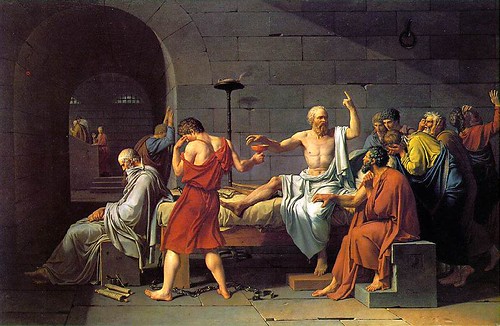Detail of A Pilgrimage to San Isidro (1819–23) by Francisco de Goya
I’m a stickler for firsts and origins, almost childishly so, or at least obsessively.
While researching Goya I stumbled on a letter by Goya to Bernardo de Iriarte dated January 4, 1794, in which I read:
I have devoted myself to painting a group of pictures in which I have succeeded in making observations for which there is normally no opportunity in commissioned works, which give no scope for fantasy and invention.” (tr. Enriqueta Harris)
Goya’s insistence on his artistic freedom (key to the notion of “romantic originality“) in making art with ‘fantasy‘ and ‘invention‘ “for which there is normally no opportunity in commissioned works” makes this dictum one of the candidates for a Manifesto of Romanticism.
Other dicta which emphasize the egomaniac (wording by Nordau) importance the Romantics placed on untrammelled feeling is the remark of the German painter Caspar David Friedrich that “the artist’s feeling is his law” and William Wordsworth‘s ascertainment that “all good poetry is the spontaneous overflow of powerful feelings“.
In the Dutch language, the poet Willem Kloos said “I am a god in the deepest core of my thoughts,” giving voice to the Romantic conception of the artist.
Goya was a god too (and perhaps the first Romantic painter) though not a god that sought to please, soothe, nor comfort.
Illustration: A Pilgrimage to San Isidro, one of the black paintings by Goya

.jpg)



.jpg)
